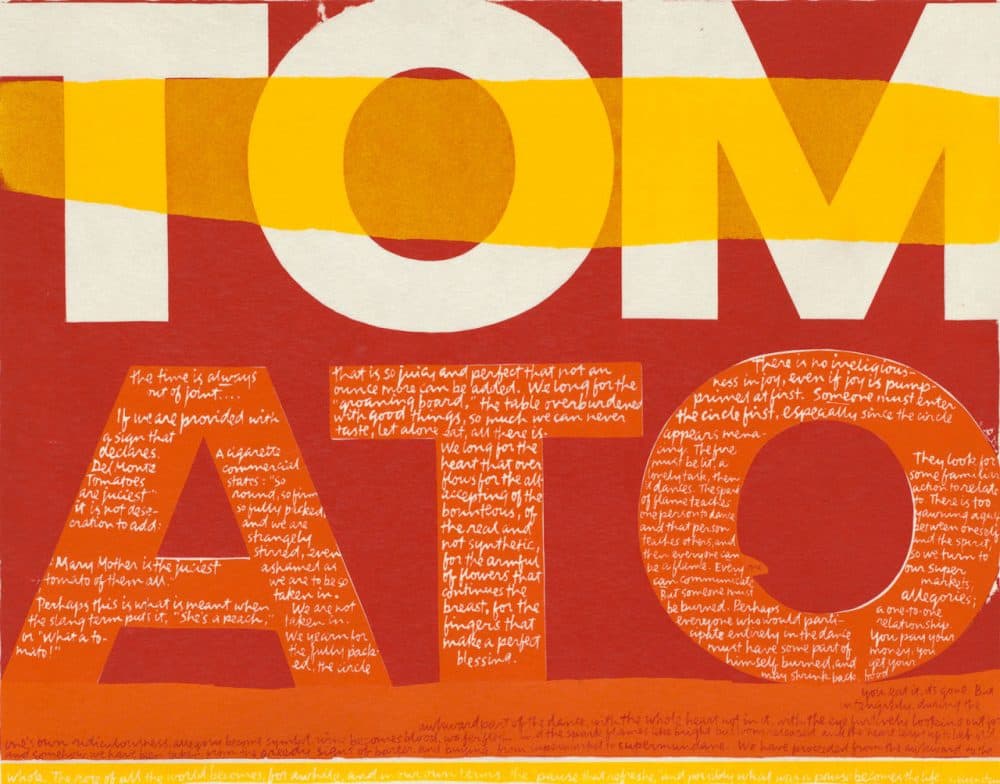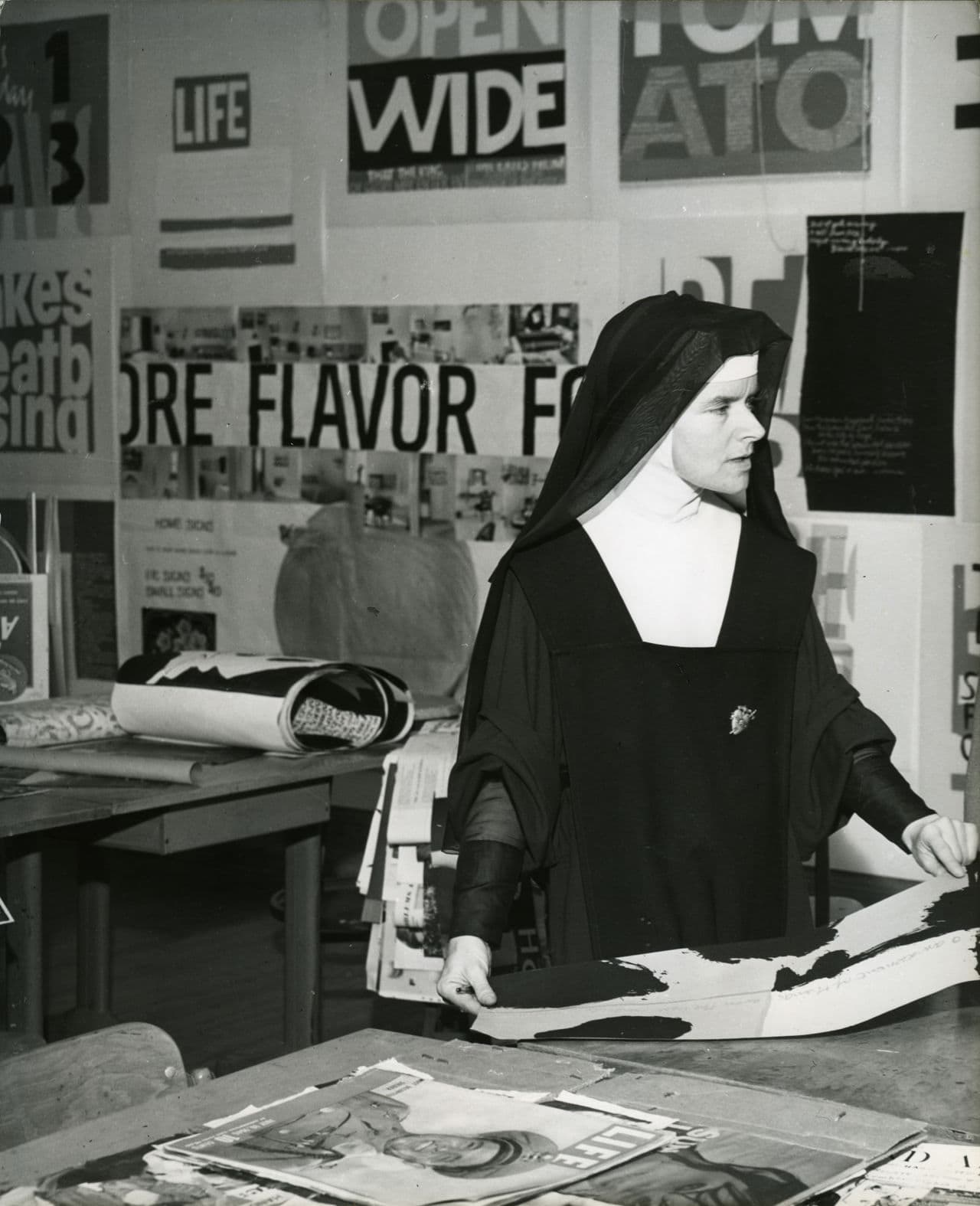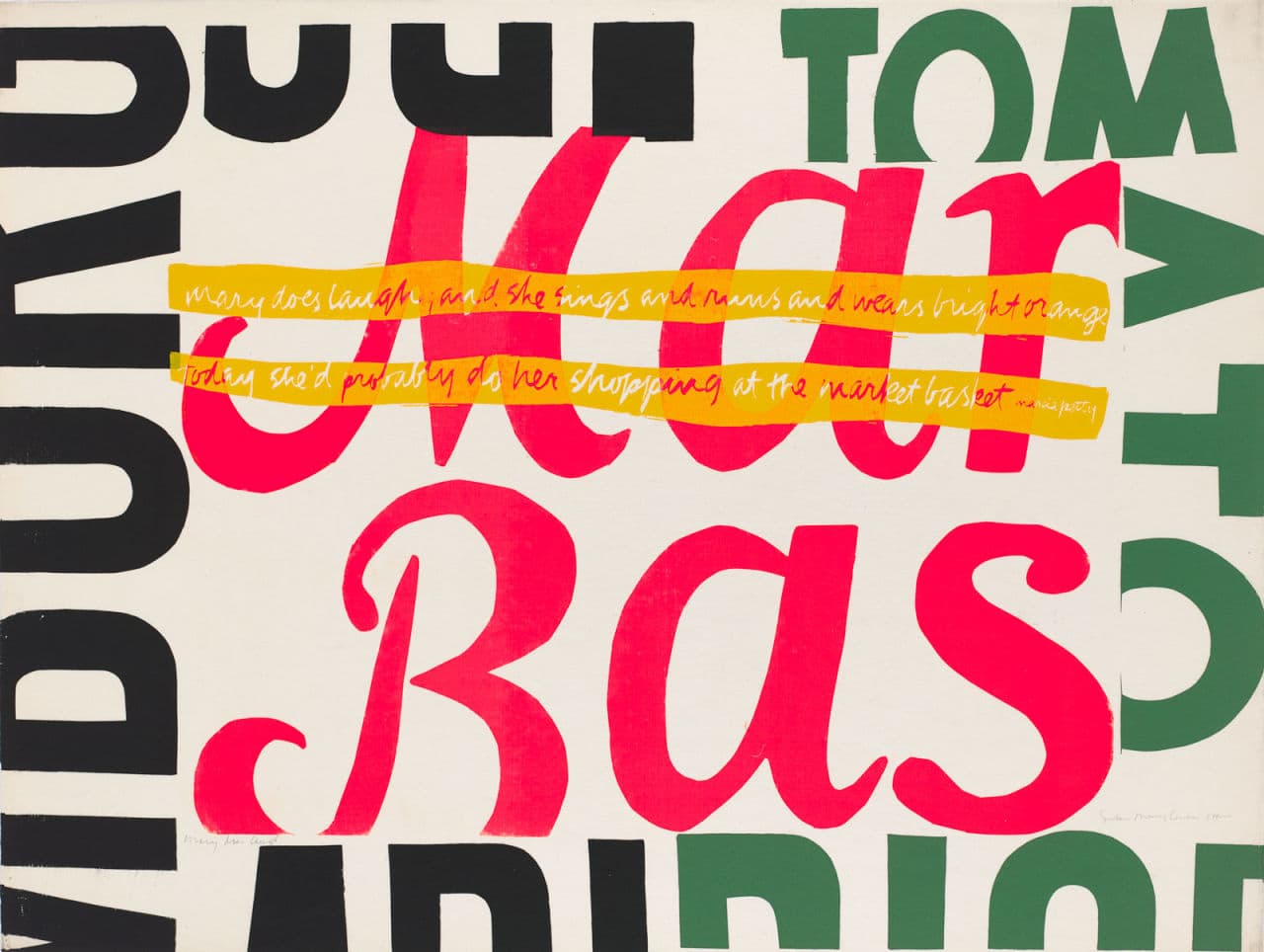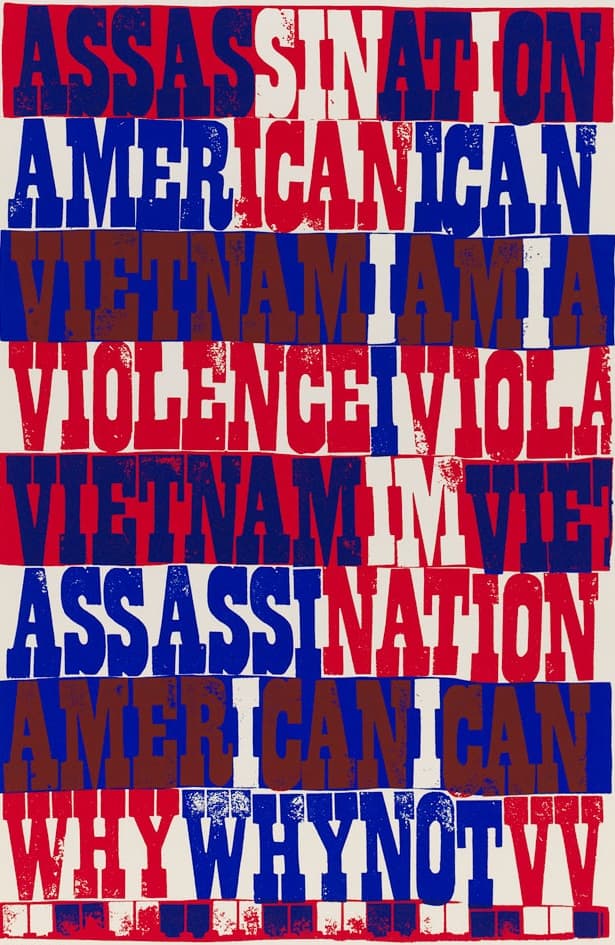Advertisement
How Sister Corita Kent Celebrated Food, Christ And Life Through Pop Art
Resume

"Sometimes you can take the whole of the world in, and sometimes you need a small piece to take in," said Sister Corita Kent in 1967.
"I think that's really what a work of art is, even though we don't have works of art anymore — it's a small piece that you can digest, which gives you a kind of idea of the richness that is in the whole."
Kent was a Roman Catholic nun, and a wildly talented 1960s pop artist. It's an unusual combination, but one with inspired purpose.
Weary commuters probably already know that Kent is also the artist who gave Boston the rainbow LNG storage tank on I-93. It's a spirited splash of color to life an otherwise dreary drive, and that sense of spirit and playful uplift is on full display at the Harvard Art Museums.


Guest
Susan Dackerman, curator of the Harvard Art Museums exhibit, "Corita Kent and the Language of Pop." She's consultative curator of prints at the museums, which tweet @harvartmuseums.
More
Harvard Magazine: Corita Kent: Nun With A Pop Art Habit
- "After Kent’s death in 1986, her papers went to the Schlesinger Library at Radcliffe, and in 2005 the art museums bought a group of 70 of Kent’s prints, aiming to make Harvard the site for scholarly investigation of her work and its place in the Pop art movement."
This segment aired on November 20, 2015.